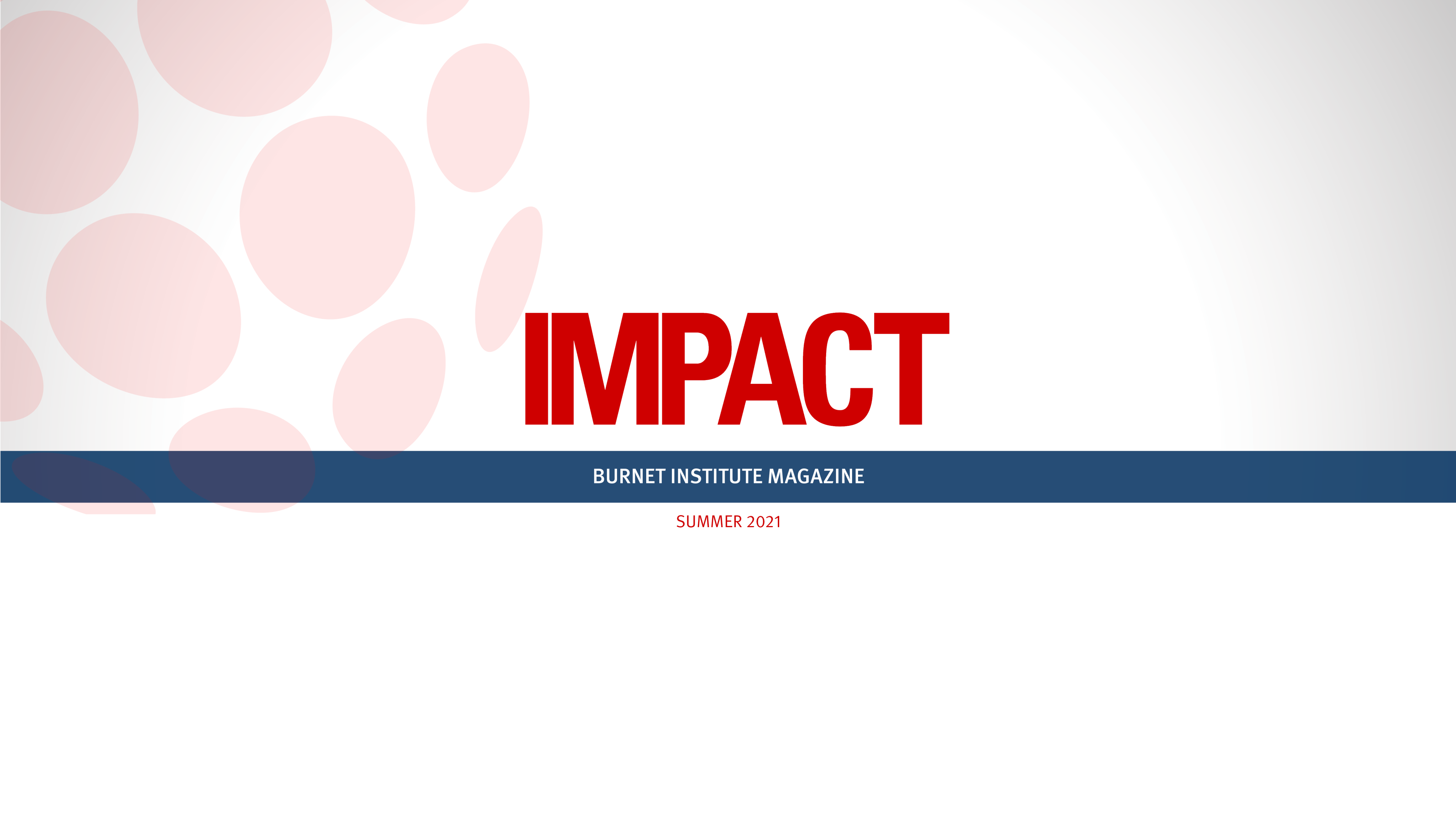Hepatitis B
Hope and hurdles

Addressing barriers while preparing for a cure
Last updated: 14 March 2024
There is renewed hope and anticipation that researchers will discover a cure for chronic hepatitis B, a life-threatening infection that affects more than 296 million people globally.

But for now, the focus is on overcoming multiple barriers hindering timely testing and diagnosis, monitoring, and treatment to prevent 17 million hepatitis B-related deaths and 63 million new infections by 2030.
In 2021, there were an estimated 200,000 people living with chronic hepatitis B in Australia. Of these only 7 out of 10 are believed to have been diagnosed with the infection.
For people living with hepatitis B, these barriers include a general lack of awareness about their condition and access to culturally appropriate health services. Often there is significant stigma and discrimination, not helped by some cultural beliefs on how hepatitis B infection is transmitted.
There is also the problem of retaining people with hepatitis B in clinical care – the nature of infection means there may not be symptoms throughout its course.
But hepatitis B activity and related liver damage can change rapidly, so it is vital that it is monitored regularly over time, and treatment started at the right time to prevent liver damage and reduce the risk of liver cancer.
“Hepatitis B is a chronic disease experienced in different ways across the lifespan, requiring retention in care, which is a major challenge,” Associate Professor Jess Howell, Burnet Senior Research Fellow and a consultant gastroenterologist, said.
“There are some big questions we all need to address. These include when, who and how should we treat hepatitis B; how we can effectively address the stigma and discrimination that people affected by hepatitis B face; and how we can increase demand for hepatitis B diagnosis and care.”
A priority group in Australia is the estimated 45 per cent of people living with chronic hepatitis B who were born in Northeast and Southeast Asia, acquired the infection at birth or childhood, and are not linked to care. A Burnet research study identified ‘enablers’ that motivated ethnic Chinese people in Australia who live with chronic hepatitis B to attend regular clinical care. Led by Burnet’s Dr Yinzong Xiao and Dr Jack Wallace, the study explored these enablers that include:
- receiving clear and accurate messages from health professionals that chronic hepatitis B increases their risks of advanced liver disease and liver cancer, but that effective and affordable treatment is available
- understanding that long-term care reduces their risk of advanced disease
- good communication and interaction between patient and doctor, increasing trust in medical professional advice
- support from family, peer groups, environments and the health system, including subsidised healthcare service and the availability of interpreters or multilingual doctors.
You're reading IMPACT magazine | Subscribe today
“Several participants in our research mentioned they were diagnosed 20 years ago, when they were told there was no effective [hepatitis B] treatment,” Dr Xiao said. “What brought people back to care is the critical information they received, for example, a doctor telling them there is a treatment, and their belief that it is beneficial to attend regular monitoring.”
Increasing the community’s knowledge about hepatitis B is important, especially with misinformation coming from different sources such as the internet as well as beliefs passed down from one generation to another – adding to stigma.
Dr Wallace, who looks at how hepatitis affects communities and shapes social practices, said: “Success in delivering the hepatitis B cure will not only relate to medicines but also in responding to the cultural and social contexts in which they’re made available.”
“The impact of a cure will be profound in reducing liver disease and cancer and in the significant social impacts among individuals.”
“A hepatitis B cure will change the fortunes of whole families by reducing uncertainty and social marginalisation.”
Please support our viral hepatitis research | Donate today

Make an Impact | Donate Today
Please donate today. Your donation will enable us to focus on safe birthing in the time of COVID-19 to improve health outcomes for mothers and babies in Papua New Guinea.
Contact Us
If you would like to discuss this edition, please contact the Burnet Marketing and Communication team below.
E: communications@burnet.edu.au
T: +61 3 9282 2111
Where possible people who appear in images included in this publication were photographed with their permission. There is no implication that these people have any infectious diseases.
Stay across the latest from Burnet Institute
Subscribe to IMPACT magazine today
Discover the IMPACT of Burnet’s medical research breakthroughs and public health projects in the Institute’s bi-annual magazine.
